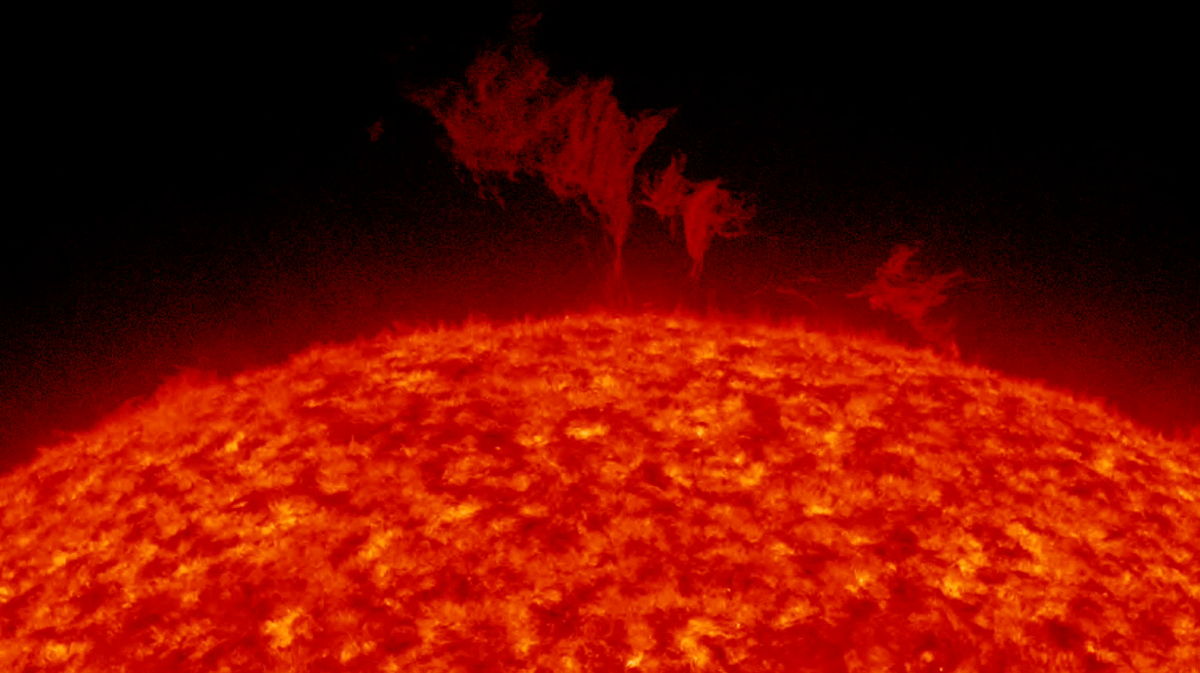
'Feeling' Beyond the Limitations of a Space Suit (Video)
Kai Staats, documentary filmmaker and member of the MarsCrew134 team, contributed this article to Space.com's Expert Voices: Op-Ed & Insights.
A space suit is a barrier between the astronaut and the environment in which he or she works. The lack of a full multi-sensory experience is a critical issue in extreme conditions, as astronauts are unable to rely upon their natural sensory system, to fully understand and interact with their environment, or to respond to dangerous situations.
Simple tasks people take for granted — tying a knot, or using a screw driver, pliers or electronic instrument, for example — can be arduous, time consuming or impossible within the confines of a space suit. MarsCrew134 crew engineer Sue Ann Seah studies the current limitations of how astronauts interact with their environment.

"An astronauts' glove is about four to five millimeters thick and is made up of many layers," said Sue Ann. "Added to the fact that they are pressurized — therefore reducing dexterity of the wrist, palm and fingers — this can have a severe impact on using your hands for performing just about any task. Imagine how frustrating it would be to type on your laptop if you were wearing two or three layers of ski gloves. Since you have difficulty feeling the different keys, you start to rely on other senses such as your sight. But if your sight was partially occluded because of your helmet, you start to make a lot of mistakes. Restoring a touch feedback through the gloves will help reduce this."
At the Mars Desert Research Station, Sue Ann recorded and observed extra-vehicular activities performed by the crew members, such as collecting biological and geological samples, using various scientific tools and instruments, and using a camera. She also tested some prototype glove designs to help establish future designs of extra-vehicular activity (EVA) gloves.
"In the future," said Sue Ann, "the spacesuit will allow astronauts to discern various surface textures, the temperature of objects, and even the smell of their surroundings. We can then really feel what it's like to be on Mars."
To learn more about MarsCrew134, visit www.marscrew134.org.
Get the Space.com Newsletter
Breaking space news, the latest updates on rocket launches, skywatching events and more!
The views expressed are those of the author and do not necessarily reflect the views of the publisher. This version of the article was originally published on Space.com.
Join our Space Forums to keep talking space on the latest missions, night sky and more! And if you have a news tip, correction or comment, let us know at: community@space.com.
Kai is an inventor, freelance writer, filmmaker, business developer and member of the MarsCrew134 team who aspires to find expression in the arena of film. He's dedicated to helping humankind become interplanetary while gaining an improved perspective of our role as caretakers for our planet Earth. While not actively engaged in film production he's been capturing the construction of SAM's Biosphere 2 and its use by visiting teams at the University of Arizona research campus near Oracle, Arizona.









